The Game Changers
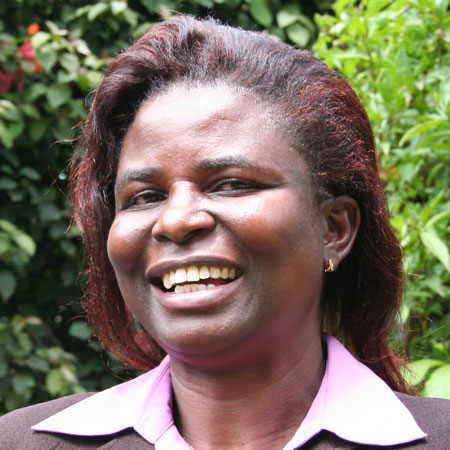
Mary Alice Onyura
Mary Alice Onyura
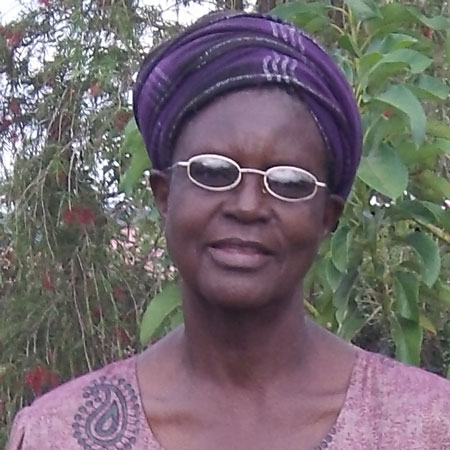
Marren Ojode
Marren Ojode
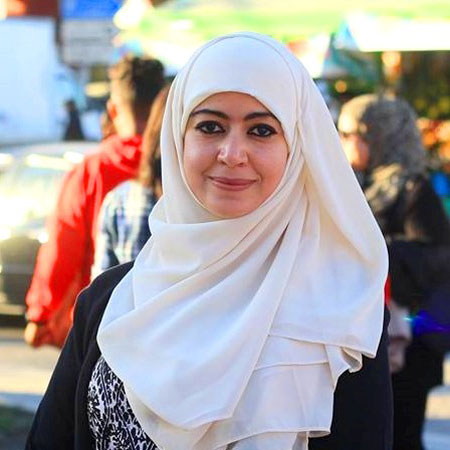
Salwa Shili
Salwa Shili
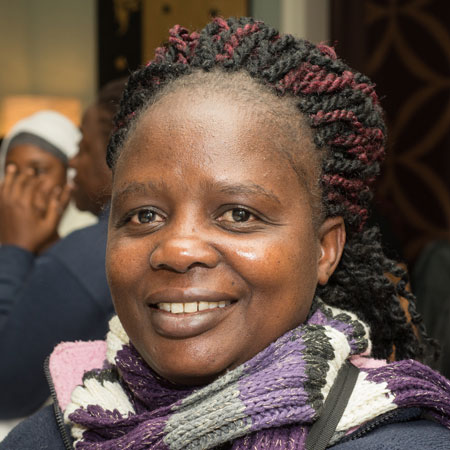
Millicent Joash
Millicent Joash
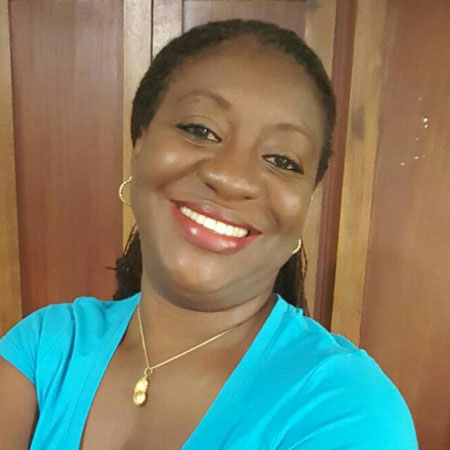
Brigitte Dzogbenuku
Brigitte Dzogbenuku
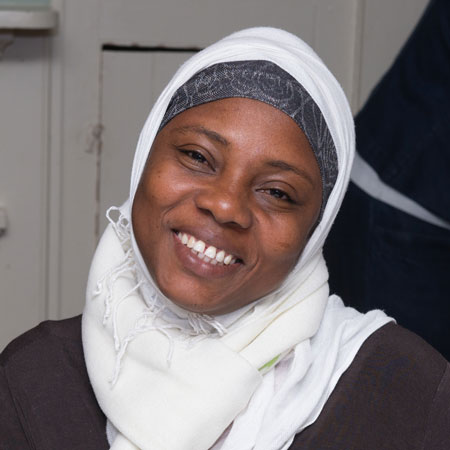
Nafisatu Yussif
Nafisatu Yussif
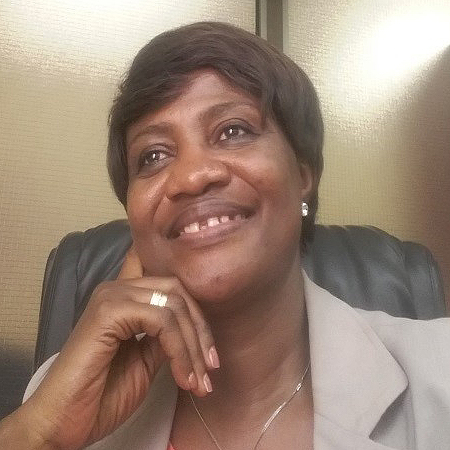
Thelma Orleans Thompson
Thelma Orleans Thompson
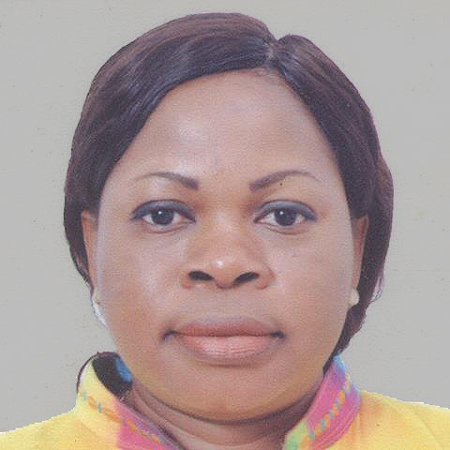
Grace Wornyo Azaonoo
Grace Wornyo Azaonoo
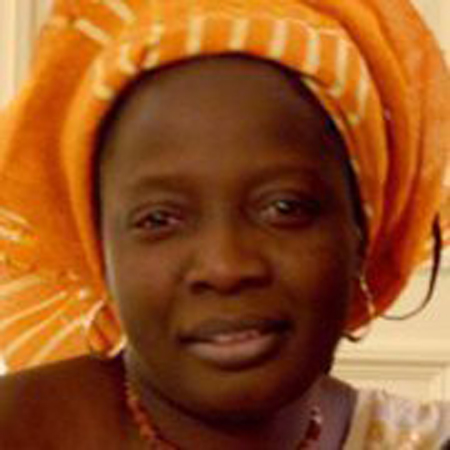
Busayo Obisakin
Busayo Obisakin
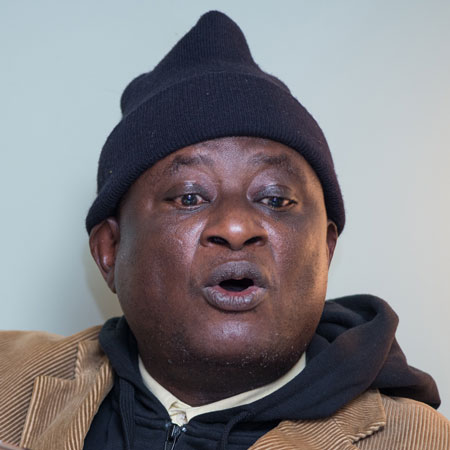
Makanjuola Obisakin
Makanjuola Obisakin
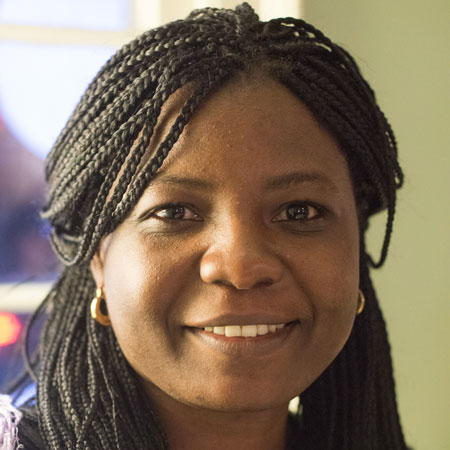
Olanike Olubunmi Olugboji
Olanike Olubunmi Olugboji
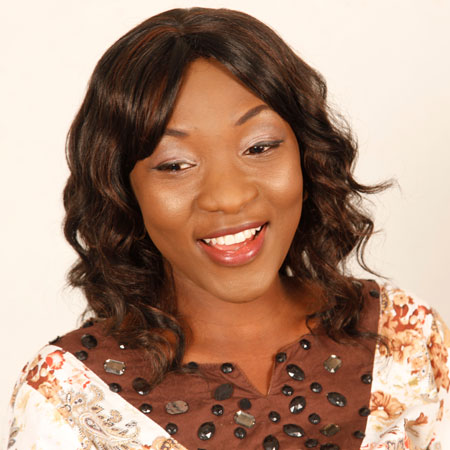
Carolyn Seaman
Carolyn Seaman
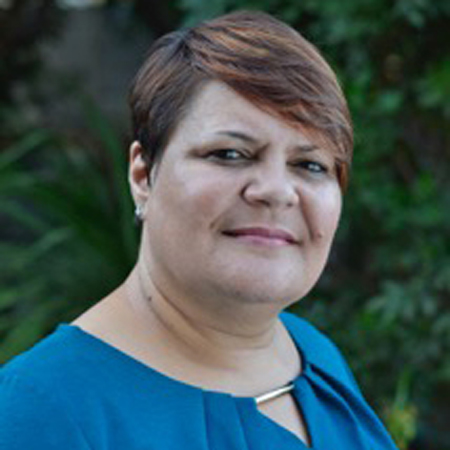
Laetitia Permall
Laetitia Permall
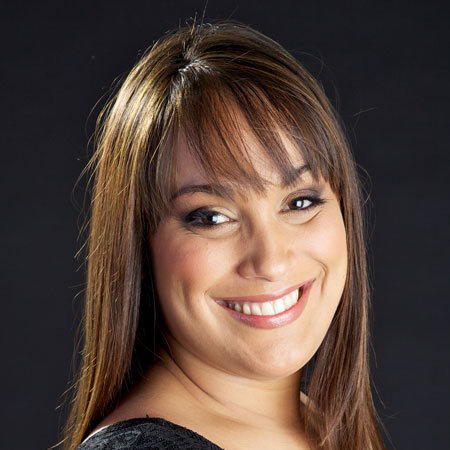
Charne Permall
Charne Permall
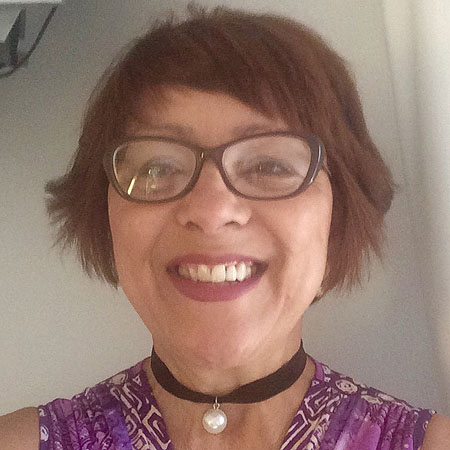
Louisa Van Romburg
Louisa Van Romburg
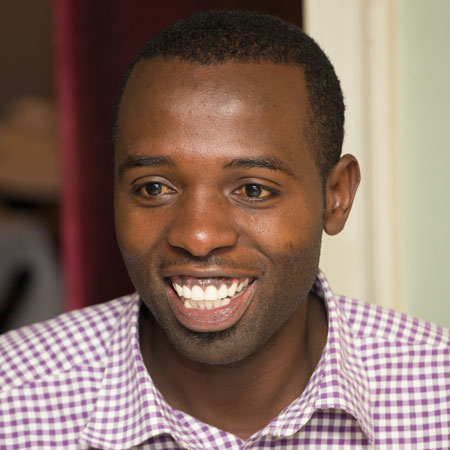
Ernest Niragire
Ernest Niragire
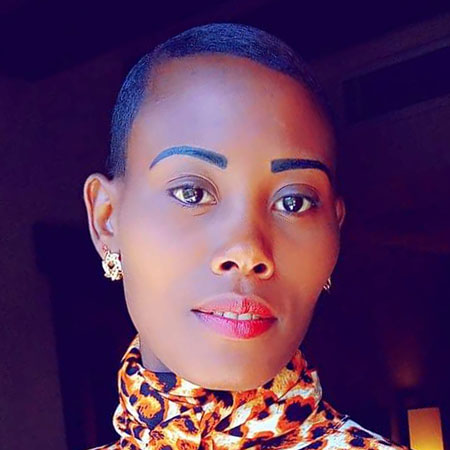
Izere Vedastine
Izere Vedastine
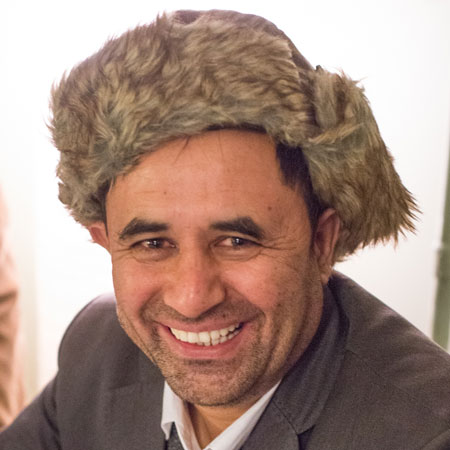
Aziz Royesh
Aziz Royesh
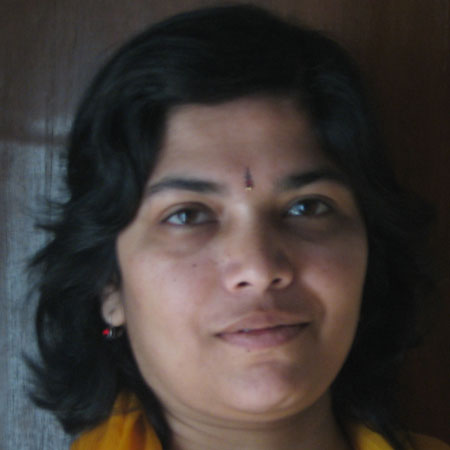
Tejaswi Sevakari
Tejaswi Sevakari
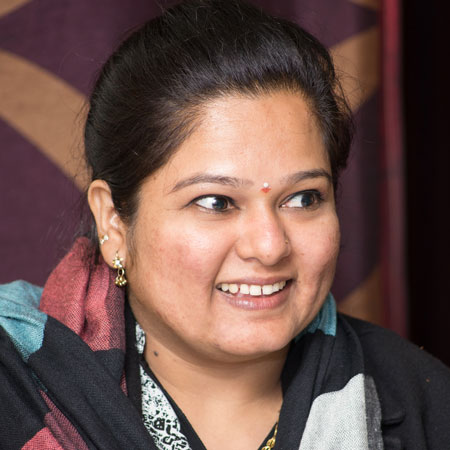
Mandakini Desale
Mandakini Desale
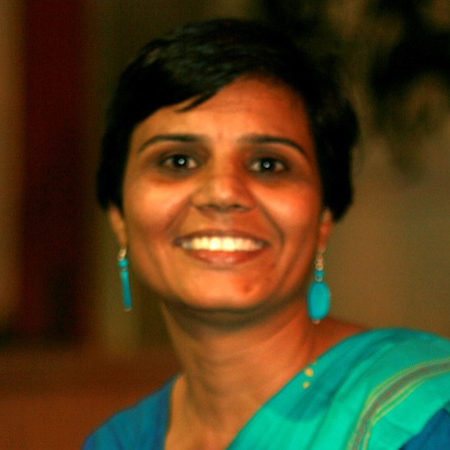
Usha Choudhary
Usha Choudhary
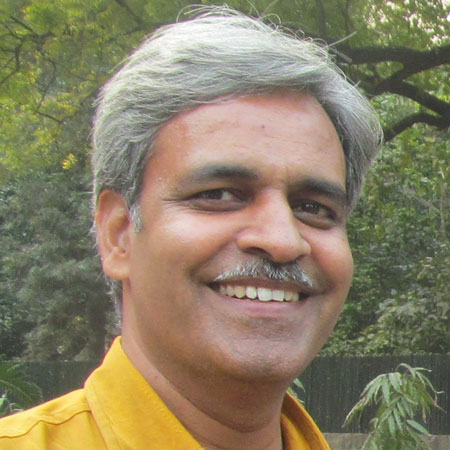
Yogesh Vaishnav
Yogesh Vaishnav
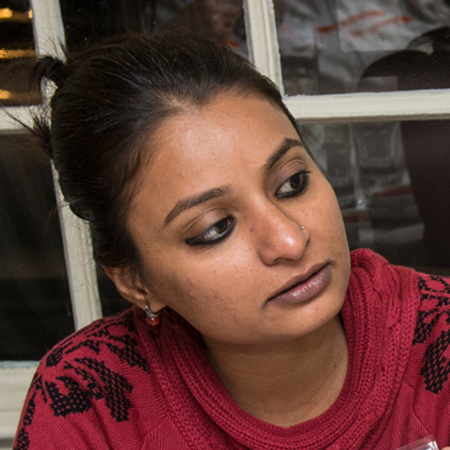
Namrata Kanuga
Namrata Kanuga
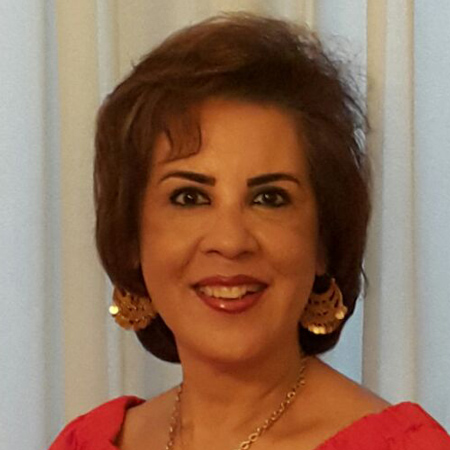
Mona El Gazzar
Mona El Gazzar
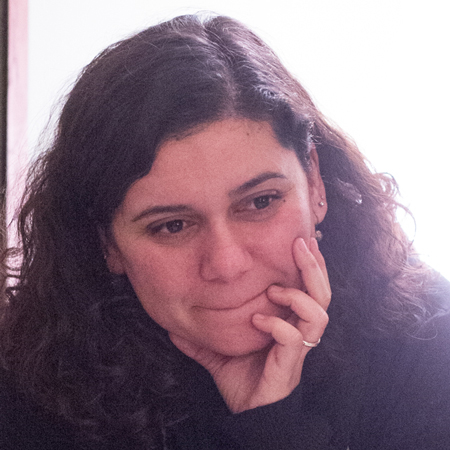
Mona Hassouna
Mona Hassouna
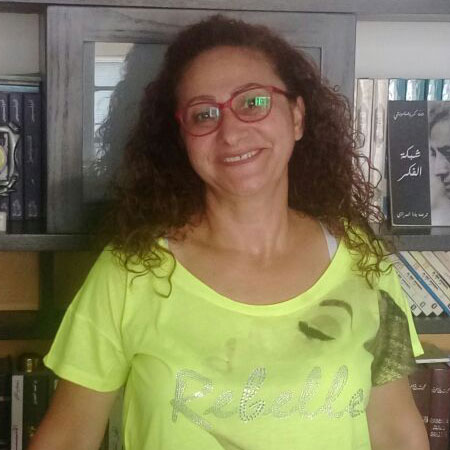
Jana Morshed
Jana Morshed
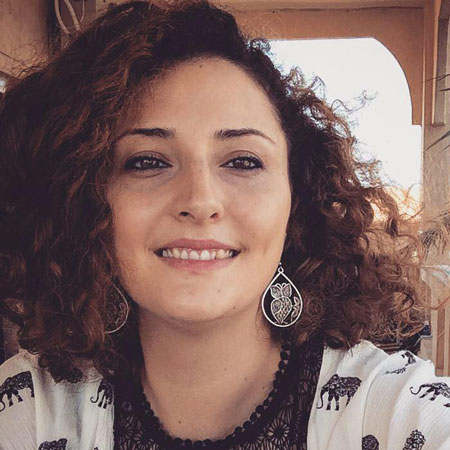
Elissa Shamma
Elissa Shamma
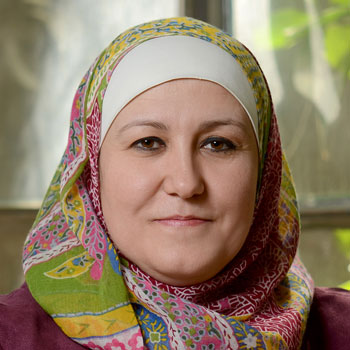
Dina Shafaqouj
Dina Shafaqouj
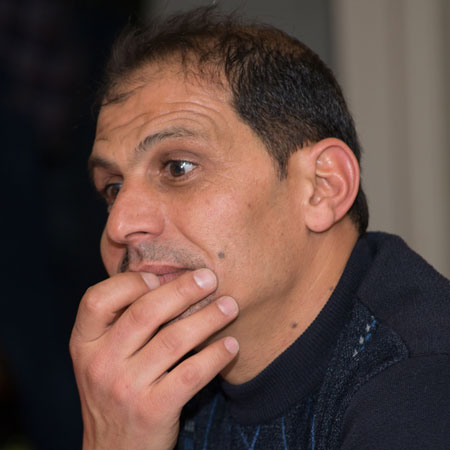
Reyad Abu Sharaf
Reyad Abu Sharaf
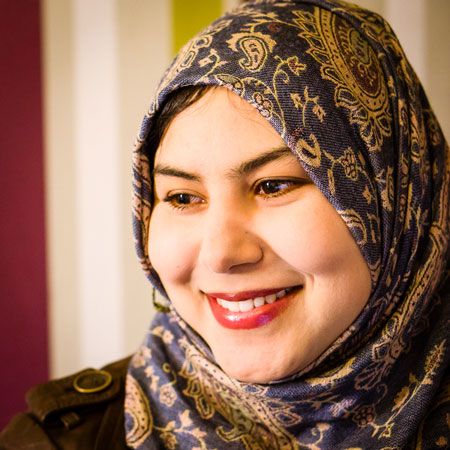
Fatima-Zahra Laaribi
Fatima-Zahra Laaribi
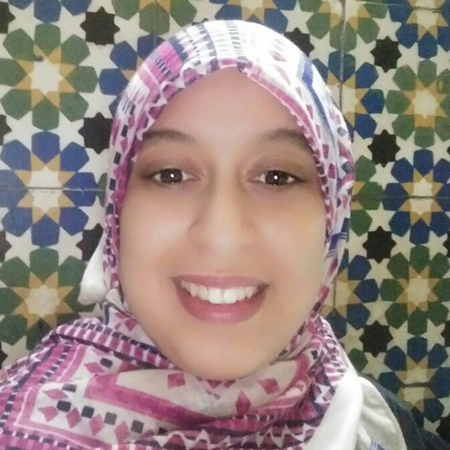
Ibtissam Niri
Ibtissam Niri
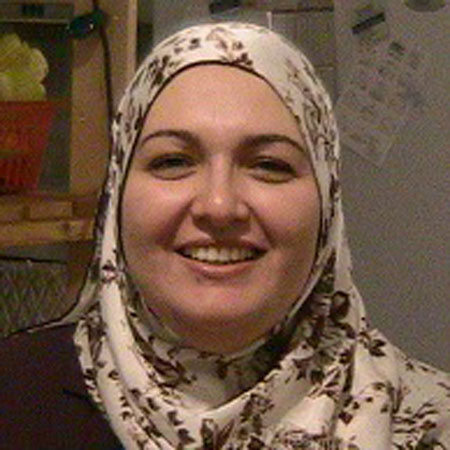
Tasnim Chirchi
Tasnim Chirchi
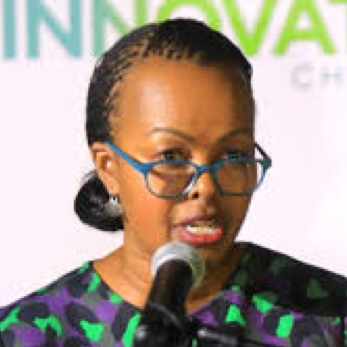
Carole Wainaina
Carole Wainaina
Mary Alice Onyura
ESVAK Community Development, Kenya
Mary Alice was born on the 26th of December 1957, and raised in a small rural Village of Homabay County in Kenya. Before joining boarding school at the age of ten, she had to walk the twelve kilometers to and from school. Such early challenges prepared her to understand the hardships of the disenfranchised women both in the rural and urban locations. She joined high school at the age of twelve having skipped the sixth class of primary school. Her professional background is in education, psychology, rural sociology, and community development. She was part of the pioneering group of women psychologists at the University of Nairobi. Mary Alice is a lively teacher, deeply empathetic. She believes in the correlation between women’s interior empowerment and economic development. In the course of her career she has worked with extremely disenfranchised target groups such as street children and homeless women. She is a founding director of ESVAK Community Development Initiatives, a national NGO that currently works with the poorest of the poor rural and urban women in small communities through 260 self-help groups in fifteen of the forty-seven counties in Kenya. She is passionate about IMAGINE Kenya and see its potential in transforming women’s lives.
ESVAK Community Development Initiatives was founded in August 2001 and is registered as a national NGO. For the past twelve years ESVAK has worked with poor communities in twenty-three constituencies in fifteen counties. Currently ESVAK partners with 260 self-help groups and ten community-based organizations while accessing a direct target population of over 10,000 through more than fifty community projects in the relevant counties. ESVAK’s current programs include Urban Slum Development; Entrepreneurship and Women & Youth Empowerment; Education for Rural and Marginalized Communities; Civic Education; Research on Clean Cook-Stoves with Johns Hopkins University; and IMAGINE Empowerment Training launched in February 2012. ESVAK has a long track record for working with communities at the grassroots level and as a result has a wealth of community capital. ESVAK has successfully managed resources for thirteen international partners and it has infrastructure in target areas. NGOs from ten European countries and the United States have partnered with ESVAK (among other projects) to build schools, children’s homes, ablution blocks, shelters for the homeless, early childhood development centers, and youth vocational training centers; offer microcredit revolving fund scheme; and carry out research.
Marren Ojode
SANJA WOMEN GROUP, Kenya
During her teaching career as the head of guidance and counseling, Marren Ojode interacted with many types of parents. This involvement led to a passion for working with women whom she saw as the pillars of families. In 1988 Marren founded the Sanja Women Group whose main objective is to uplift the socioeconomic conditions of disadvantaged rural women. Because waterborne diseases posed a great threat to this population, the focus of their work has been on clean water projects in Sanja Spring, Kiringi, Nyamnethe, and Gode-Barore. These projects helped the Sanja women to realize their self-reliance and economic empowerment. But it wasn’t until the IMAGINE Kenya Initiative when Marren was certified to facilitate the Empowerment Workshop that these women realized their agency and inner power. The partnership of economic empowerment along with this agency has made these rural women unstoppable. They are now engaged in a variety of family businesses including selling grains as well as making and selling liquid soap. For the first time they are able to feed and educate their children. Inspired by the results of the Empowerment Workshop, Marren has trained more than three hundred women.
SANJA WOMEN GROUP
In 1988 Mrs. Marren Ojode founded Sanja Women Group with her vision to uplift the socioeconomic and spiritual welfare of rural populations. The Sanja Women’s Group is a branch of the Nyisango Women, serving communities in the Nyanza Province. Key services provided include launching women’s groups that take responsibility to support themselves via small businesses created through microlending funds; creating HIV/AIDS awareness through positive campaigns as well as caring for people living with HIV/AIDS; caring and supporting orphans and vulnerable children; and providing access to clean water. The Sanja Women Group works in collaboration with the government of Kenya, social service groups, other NGOs, and local hospitals, schools, and development services. In 2011 Marren Ojode attended the Empowerment Institute in New York where she was certified as an Empowerment Workshop facilitator. Since then, through Sanja Women Group she has trained more than three hundred women in rural Kenya with the Empowerment methodology. Not only have these women been transformed socially, economically, and spiritually; they in turn have transformed entire communities. soulsourcefoundation.org/partners/sanjo-women/
Salwa Shili
Salwa Shili has a bachelor’s degree in journalism and communication studies from the Institute of Press and Information Sciences at the University of Manouba in Tunisia and a master’s degree in media sciences and technologies (interactive media and new content) from the Mediterranean School for Advanced Studies at the University of Pavia in Italy. Salwa specializes in communication, project management, web content development, and the management of training programs. She has deep and wide experience with the private sector, having worked for more than twelve years with many national and international companies as a web content editor, web analyst, communication consultant, and coordinator or project manager. She is currently a training and development manager. She has proven skills in designing training programs, facilitation, leadership, and monitoring as well as in the evaluation, appraisal, and review of a training program’s effectiveness and success.
Salwa Shili is catalyst of hope, inspiration, and motivation. She has the stamina, determination, love, and passion to redirect the lives of marginalized youth and women who are living in disadvantaged circumstances, and she enjoys helping them rediscover their value and find the beauty and the greatness inside them in order to create healthy, sustainable, and resilient communities as they rewrite their destinies.
Jasmine Foundation
Think. Engage. Empower
The Jasmine Foundation (JF) is an “action research” CSO that has established itself as an innovative NGO working to study social challenges in Tunisia and come up with creative solutions. Jasmine Foundation has extensive experience in programs that engage vulnerable or marginalized youth.
JF specializes in civic education for youth in marginalized areas, using non-formal education and youth-led trainings to engage youth and women in civic life and public decision-making, particularly at the local level, by giving them the tools, skills and confidence they need.
JF also has developed extensive experience in successfully translating scientifically rigorous research into policy relevant outcomes and programming. JF has significant experience in organizing and mediating public dialogue and forums, research methodologies and fieldwork, writing policy briefs, and helping local actors conduct outreach.
To date JF has successfully managed many large projects thanks to a dedicated and skilled team of researchers, project coordinators and assistants as well as an extensive and solid network of volunteers. Since its establishment in 2013, JF has grown a prolific network of allies and collaborators in the private and public sectors alongside civil society.
jasmine-foundation.org/
Millicent Joash
Millicent Adhiambo Joash was raised in a humble family in the small village of Tagache in Muhuru Bay on the shores of Lake Victoria in Kenya. Millicent attended Jomo Kenyatta University of Agriculture and Technology in Nairobi, where she graduated with a bachelor of science degree in botany and zoology. She further pursued a postgraduate diploma in education at Kenyatta University. She is a wife and the mother of four beautiful children. Millicent has worked as a teacher, trainer, credit officer, and now as senior program officer at ESVAK Community Development Initiatives, as well as an assistant trainer at the Kenyan NGO Sanja Women’s Group.
ESVAK Community Development
ESVAK Community Development Initiatives was founded in August 2001 and is registered as a national NGO. For the past twelve years ESVAK has worked with poor communities in twenty-three constituencies in fifteen counties. Currently ESVAK partners with 260 self-help groups and ten community-based organizations while accessing a direct target population of over 10,000 through more than fifty community projects in the relevant counties. ESVAK’s current programs include Urban Slum Development; Entrepreneurship and Women & Youth Empowerment; Education for Rural and Marginalized Communities; Civic Education; Research on Clean Cook-Stoves with Johns Hopkins University; and IMAGINE Empowerment Training launched in February 2012. ESVAK has a long track record for working with communities at the grassroots level and as a result has a wealth of community capital. ESVAK has successfully managed resources for thirteen international partners and it has infrastructure in target areas. NGOs from ten European countries and the United States have partnered with ESVAK (among other projects) to build schools, children’s homes, ablution blocks, shelters for the homeless, early childhood development centers, and youth vocational training centers; offer microcredit revolving fund scheme; and carry out research.
Brigitte Dzogbenuku
Brigitte Dzogbenuku is the founder and executive director of Mentoring Women Ghana (MWG), which runs programs that inspire and empower young women and girls into making a positive difference in their communities. She won the Fortune/Goldman Sachs Women’s Leadership Award in 2008. Prior to her work at MWG she was general manager of Aviation Social Centre, a fitness and recreational center in Accra, where she introduced various innovative fitness programs and events into this niche industry in Ghana. In 2011, she founded Recreational Facilities Management, a company that later became Helm Management Services Limited, which runs recreational facilities; in this role she managed the Barclays Bank Club House for four years, until September 2015. She has also established Ve Flavour Industries, an edible-palm-oil production and packaging for-profit company that works with women in the Volta region of Ghana, contributing to their socioeconomic empowerment. Brigitte is driven by the Ghanaian woman’s strong will to succeed no matter the odds and has a dream of seeing women in key leadership roles in Ghana.
Mentoring Women Ghana
Mentoring Women Ghana (MWG) is an NGO established in Ghana in 2009 with the aim of supporting the personal growth of young women through mentoring by more mature and accomplished women. Through sports programs, professional interaction, and personal development programs, mentors inspire young women and help them achieve leadership qualities, career direction, and personal and social development through which they can positively impact their immediate communities and beyond. MWG’s vision is a community of empowered women who are contributing to the development of their communities and positively impacting lives of others. MWG has been the flag-bearer of the international Global Mentoring Walk for the past eight years and had mentored more than 320 young women as of 2016. http://www.mwghana.org/en/
Nafisatu Yussif
afisatu Yussif is committed to promoting the rights and well-being of women and men, and in particular the poor, marginalized, and disadvantaged. She holds a master of science degree in social policy and development from the London School of Economics and Political Science, a bachelor’s degree in political science with information studies from the University of Ghana, and a postgraduate certificate in community development from Trent University in Peterborough, Canada.
Since 2011 Nafisatu has been working in gender and development. For some time she worked with the highly regarded West African NGO ABANTU for Development in Accra, Ghana, where she promoted women’s rights and gender equality. Having developed gender expertise over the years, Nafisatu currently works with Solidaridad West Africa as the gender officer for the promotion of gender perspectives across the different commodities and programs of the organization.
Solidaridad West Africa
Solidaridad West Africa (SWA), a member of the global Solidaridad network, is an NGO that specializes in promoting sustainable production across the value chains of cocoa, oil palm, gold, and annual crops such as maize and cotton. SWA works toward a triple bottom line: people and planet along with profit. SWA supports producers and their households and communities to attain economic empowerment, social cohesion, and resilient environments. The organization’s approach is mainly through training, sensitization, and awareness creation in producing communities. SWA also engages with policy makers (to influence policy), producers (to adopt sustainable practices), CSOs (to network, collaborate, and get support for SWA’s work), traditional leaders (for ownership and to get support for SWA’s work in the various communities). Effective promotion of gender is considered prime toward the achievement of Solidaridad’s objectives.
Thelma Orleans Thompson
Thelma Orleans Thompson is a results oriented, self-motivated, optimistic individual with a passion to serve humanity in general and contribute to the social development of Ghana in particular. Her professional experience spans in the areas of teaching, socioeconomic development, program development, and management and policy analysis at ABANTU for Development.
Thelma holds master’s degrees in social policy analysis from the University of Ghana and environmental management and policy from the University of Cape Coast, as well as a bachelor’s degree in sociology with linguistics from the University of Ghana, with professional courses in both project planning and management.
Equipped with great negotiation, communication, and interpersonal skills, Thelma is an advocate for women’s empowerment, child well-being, and substantive community development. She loves to sing, listen to hymns, and watch movies. She is married and has four children: two boys and two girls.
ABANTU for Development
ABANTU for Development is a women’s rights organization working to promote women’s agency in development processes in Ghana and in Africa as a whole. ABANTU is an NGO established in 1991 by a group of African women living in England. It has extended its reach by establishing autonomous regional offices in Eastern and Western Africa. The Ghana office, ABANTU for Development, Regional Office for Western Africa, is currently in special consultative status with the Economic and Social Council of the United Nations and focuses on gender and governance, gender and climate change, and gender and peace building, which are key areas of development as contained in the Twelve Critical Areas of Concern in the Beijing Platform for Action.
Grace Wornyo Azaonoo
Grace Wornyo Azaonoo is the program coordinator of the Accra-based West African regional office of ABANTU for Development, a women’s rights organization that works to promote gender responsiveness in policies in Ghana and Africa generally and that hosts the civil society organization Gender Action on Climate Change for Equality and Sustainability. She also serves as a program officer in charge of ABANTU’s Young Women’s Mentorship Program. She is a fellow of the Ghanaian Women’s Social Leadership Program at the Research Center for Leadership in Action at NYU Wagner (New York University); she advocates as a gender activist; she is a member of the Network for Women’s Rights (NETRIGHT), which focuses on economic justice and women’s land rights in Ghana; and she leads a youth group of more than 200 members in her community that works to harness and grow the talents and potential of local youth by shaping attitudes through trainings that enable young people to impact society positively. Grace holds a graduate diploma in project management from the Ghana Institute of Management and Public Administration and received her bachelor of science degree in administration (human resource management) from University of Cape Coast, Ghana.
ABANTU for Development
ABANTU for Development is a women’s rights organization working to promote women’s agency in development processes in Ghana and in Africa as a whole. ABANTU is an NGO established in 1991 by a group of African women living in England. It has extended its reach by establishing autonomous regional offices in Eastern and Western Africa. The Ghana office, ABANTU for Development, Regional Office for Western Africa, is currently in special consultative status with the Economic and Social Council of the United Nations and focuses on gender and governance, gender and climate change, and gender and peace building, which are key areas of development as contained in the Twelve Critical Areas of Concern in the Beijing Platform for Action.
Busayo Obisakin
Busayo Obisakin was born into an illiterate family in Nigeria. When she lost her father twenty-two years ago, as the first born in her family Busayo cared for her six siblings. A passionate and highly regarded advocate of gender equality in Nigeria, Busayo has dedicated much of her life work to women’s empowerment. She is founder and CEO of the Women Inspiration Development Center (WIDC). WIDC is designed to help Nigerian girls and women in challenging life circumstances to envision and create new possibilities for their lives, families, and communities. She holds a BS degree in guidance counseling and an MS in administration. For eighteen years she worked as a guidance counselor at the secondary school level and is currently a guidance counselor in the division of students’ affairs, Obafemi Awolowo University, Ile-Ife, Osun State, Nigeria. Busayo has completed World Pulse’s Voices of the Future program where she was an award-winning citizen journalist. She completed the Empowerment Institute Certification program in New York in June of 2010.
Women Inspiration Development Center
Busayo Obisakin founded the Women Inspiration Development Center (WIDC) in 2008. Along with a group of women colleagues called Vigilantes Against Violence, Busayo set out to curb the violence against women and girls. The mission of the Women Inspiration Development Center is to improve the physical, economic, and social status of Nigerian women and girls, empowering them to lead fulfilling lives free of violence. WIDC provides a safe haven along with an ongoing network that empowers women and girls to discover the real purpose of their lives and to create new possibilities without fear or intimidation. The Empowerment Workshop is a central part of WIDC’S curriculum. When the mission of WIDC is fulfilled, Nigeria will be a safe place for women and girls. https://www.betterplace.org/en/organisations/womeninspirationnigeria
Makanjuola Obisakin
Makanjuola Obisakin was born in Nigeria and received his BA in English education from the University of Ife in 1986. Currently he is working toward his doctorate in education. Makanjuola has worked as a teacher and as a secondary-school principal. He is an Empowerment Workshop facilitator with his wife, Busayo Obisakin, at their NGO, Women Inspiration Development Center in Nigeria. Makanjuola was the first IMAGINE trainer to bring the Empowerment Workshop to men, leading the way for many other IMAGINE countries to begin their work with men who support women’s empowerment.
Women’s Inspiration Center
Busayo Obisakin founded the Women Inspiration Development Center (WIDC) in 2008. Along with a group of women colleagues called Vigilantes Against Violence, Busayo set out to curb the violence against women and girls. The mission of the Women Inspiration Development Center is to improve the physical, economic, and social status of Nigerian women and girls, empowering them to lead fulfilling lives free of violence. WIDC provides a safe haven along with an ongoing network that empowers women and girls to discover the real purpose of their lives and to create new possibilities without fear or intimidation. The Empowerment Workshop is a central part of WIDC’S curriculum. When the mission of WIDC is fulfilled, Nigeria will be a safe place for women and girls. https://www.betterplace.org/en/organisations/womeninspirationnigeria
Olanike Olubunmi Olugboji
Olanike Olugboji is a resource conservationist and women’s empowerment advocate in Nigeria. She holds degrees in urban and regional planning. Inspired by her concern for nature and deep sense of equity, she founded the Environmental Management and Protection Network in Nigeria in 2004. While in the field, she became profoundly aware of the lack of attention to women’s roles, rights, and responsibilities in environmental sustainability. Olanike’s passion is engaging grassroots women in natural resource stewarding and peace making, through her organization the Women Initiative for Sustainable Environment (WISE), which she founded in 2009. Her online journal Women, Environment, and Society Think-Tank on the World Pulse website is dedicated to raising awareness and spurring action about environmental issues touching women’s lives. Her article about the need for safer affordable cooking options as an alternative to the open-fire stoves used by disadvantaged women in Nigeria appeared in Time magazine in April 2016. Among her recognitions, Olanike was named as one of the top Voices of Our Future correspondents at World Pulse, and she was also a recipient of the Junior Chambers International 2014 Ten Outstanding Young Professionals in Nigeria Award.
Women Initiative for Sustainable Environment (WISE)
Women Initiative for Sustainable Environment (WISE) is a nonprofit organization with a mission of empowering grassroots women and youth with the information, knowledge, skills, and human agency that will help them become natural-resource stewards and peace makers. The organization’s work focuses on the promotion of environmental sustainability, women’s empowerment, gender equality, poverty reduction, and peace building in Nigeria and beyond. WISE programs deliver environmental awareness on climate change, conservation, food and water security, peace and conflict resolution, micro entrepreneurship, citizen journalism, clean cooking solutions, and human agency. WISE also networks and lobbies individuals, governmental and intergovernmental bodies, NGOs, and corporate organizations to develop environmentally sustainable initiatives that socially and economically empower women. WISE has initiated and implemented many projects that support women and girls in becoming active leaders in the environmental sector, where they have long been invisible and unheard. To date, WISE has directly impacted more than 7,000 women across rural and urban communities in Nigeria. WISE envisions a safe and just world where green living is achievable for everyone. http://www.wisenigeria.org
Carolyn Seaman
Carolyn Seaman is a trained lawyer with a decade’s experience in gender and development in Nigeria. Passionate about women’s and girls’ rights, she has coordinated and contributed to several research projects and interventions on girls’ and women’s empowerment. In 2013, Carolyn established Girls Voices Initiative, a nonprofit that provides a platform for women and girls to identify their voices and use those voices to advocate their interests. In 2016, Carolyn was named one of the top World Pulse Voices of Our Future Correspondents. She is a World Pulse mentor, leading technology and digital empowerment workshops for women. As a World Pulse Ambassador, Carolyn is on a mission to reach 1,000 women and connect them online. After an introduction to the Empowerment Workshop on World Pulse, Carolyn connected with the IMAGINE certified trainers in Nigeria and participated in empowerment workshops with community women. And through a Memorandum of Understanding between the Women Inspiration Development Center and Girls Voices Initiative, she is part of co-creating a program to implement empowerment workshops for 200 vulnerable women in underserved communities in Nigeria’s capital city, Abuja. Carolyn also co-owns Marksmen Consult Limited, a company that provides consulting and specialized digital media production services to various clients.
Girls Voices Initiative
Girls Voices Initiative (GV) is a nonprofit that provides a platform for women and girls to identify their voices and use those voices to advocate their interests. Using digital media to amplify their voices to wide audiences in Nigeria and around the world, GV positions women and girls as active voices advocating the issues that concern them. GV also provides women and girls with basic life and social survival skills, digital and financial literacy skills, and advocacy and citizen journalism skills that empower them to make positive impact in their communities. GV seeks to promote gender equality in Nigeria, through skills training and development that empowers women and girls to improve their livelihood. GV also seeks to advance and amplify women’s and girls’ voices and rights by using technology and digital media. GV is committed to the IMAGINE Nigeria program and is exploring empowerment workshops in Nigeria’s media industry and with survivors of early marriage, which are vital components of GV’s work with women and girls in Nigeria.
Laetitia Permall
Laetitia Permall is a registered educational psychologist and manages the Office for Academic Support at the University of the Western Cape (UWC) in Bellville, South Africa. She received certification as an Empowerment Workshop facilitator in Rhinebeck, New York, in 2013 and is now completing training in the IMAGINE masters certification program. She feels proud to be part of a dynamic IMAGINE South Africa and Africa team. Laetitia’s empowerment work has predominantly been focused on students at UWC but she has also worked with diverse groups of men and women ranging from 19 to 65 years old. Her empowerment work has been integrated into the UWC curriculum as part of a first-year university course to enhance the development of graduate attributes.
Laetitia served as president of the Southern African Association for Counselling and Development in Higher Education in 2012–2013 and as secretary of the Southern African Federation of Student Affairs and Services for 2013–2014. She has presented at national and international conferences and continues to develop strategic interventions to support the personal, academic, and social development of students within the higher-education sector. She is currently pursuing a PhD in child and family studies; her research is a comparative study that explores the impact of the Empowerment Workshop on the core beliefs, self-efficacy, psychological well-being, and academic achievement of university students.
Laetitia is codirector of Cabanga, a nonprofit organization based in the Western Cape that focuses on enhancing youth potential through learning and growth initiatives (including the Empowerment Workshop). She is married to Leon and is the proud mother of two daughters—Charne, age 29, and Roche, age 24. She is blessed to still have her 80-year-old mother, Esther, in her life. She believes that it is imperative to always strive to live the work she shares with others. To this end, her life’s philosophy is “to thine own self be true.”
Cabanga
The nonprofit Cabanga organization, based in South Africa’s Western Cape, is codirected by IMAGINE team members Laetitia Permall and her daughter Charne Permall. The word cabangameans to “conceive” or “imagine” in Zulu and SeSotho. The vision of Cabanga is to help youth and parents create new possibilities for their lives and to fortify the family as a system. Cabanga works collaboratively with other stakeholders to equip people to take agency toward a better life. It strives to facilitate access for youth from impoverished communities to career assessments, learning support, and opportunities to enhance their holistic development and well-being. It also endeavors to create spaces where parents can access parenting-skills training and support. The Cabanga organizers believe that it is imperative for people to become the active managers of their own personal and professional development. They hope to grow Cabanga and help create youth development centers across South Africa that will provide youth and parents with the tools to become agents of holistic, positive social change as democratic citizens and contributors toward the global economy.
Charne Permall
Currently running her own consulting business, Chasse People Consulting (Pty) Ltd, specializing in human-capital development, Charne Permall holds a master’s degree and is a registered psychologist in Western Cape, South Africa. With more than eight years of experience in the corporate sector, Charne is passionate about developing people and making a difference in the way she leads her clients. Charne received her certification as an Empowerment Workshop facilitator in New York in 2016 and will continue her training in the IMAGINE master trainer certification program. Her passion for people has been matched with the impact of the Empowerment Workshops in developing the youth of South Africa. Charne is honored to contribute to IMAGINE South Africa by working closely with her mother, Laetitia Permall, and their NGO, Cabanga Foundation.
Cabanga
The nonprofit Cabanga organization, based in South Africa’s Western Cape, is codirected by IMAGINE team members Laetitia Permall and her daughter Charne Permall. The word cabanga means to “conceive” or “imagine” in Zulu and SeSotho. The vision of Cabanga is to help youth and parents create new possibilities for their lives and to fortify the family as a system. Cabanga works collaboratively with other stakeholders to equip people to take agency toward a better life. It strives to facilitate access for youth from impoverished communities to career assessments, learning support, and opportunities to enhance their holistic development and well-being. It also endeavors to create spaces where parents can access parenting-skills training and support. The Cabanga organizers believe that it is imperative for people to become the active managers of their own personal and professional development. They hope to grow Cabanga and help create youth development centers across South Africa that will provide youth and parents with the tools to become agents of holistic, positive social change as democratic citizens and contributors toward the global economy.
Louisa Van Romburg
Louisa Van Romburg is a registered social worker who acts as a facilitator and counselor for students at the University of the Western Cape (UWC) in Bellville, Cape Town, South Africa. She received certification as an Empowerment Workshop facilitator in Amman, Jordan, in 2017 and is now training in the IMAGINE masters certification program. Louisa is proud to be part of a dynamic IMAGINE South Africa team and its organization, Cabanga. Louisa’s empowerment work has predominantly been focused on students at UWC, where the Empowerment Workshop has been integrated into the UWC curriculum as part of a first-year university course to enhance the development of graduate attributes.
Louisa is a lifelong learner who loves working with people, especially the most oppressed, marginalized, and vulnerable in society. She completed her social work degree at UWC in 2015 and graduated in 2016 at the age of 52. She completed her social work internship at Victoria Hospital in Wynberg, Cape Town, South Africa, and was employed as a social worker by the Palliative Care Department at the hospital during 2016. Prior to becoming a social worker, she worked as a hair stylist for nearly thirty years. Her love for learning, growth, and change was the catalyst that led to her participating in an Empowerment Workshop and then becoming an Empowerment practitioner.
Cabanga
The nonprofit Cabanga organization, based in South Africa’s Western Cape, is codirected by IMAGINE team members Laetitia Permall and her daughter Charne Permall. The word cabanga means to “conceive” or “imagine” in Zulu and SeSotho. The vision of Cabanga is to help youth and parents create new possibilities for their lives and to fortify the family as a system. Cabanga works collaboratively with other stakeholders to equip people to take agency toward a better life. It strives to facilitate access for youth from impoverished communities to career assessments, learning support, and opportunities to enhance their holistic development and well-being. It also endeavors to create spaces where parents can access parenting-skills training and support. The Cabanga organizers believe that it is imperative for people to become the active managers of their own personal and professional development. They hope to grow Cabanga and help create youth development centers across South Africa that will provide youth and parents with the tools to become agents of holistic, positive social change as democratic citizens and contributors toward the global economy.
Ernest Niragire
Ernest Niragire is the coordinator of the Rwandan NGO Duhozanye. In this capacity Ernest has spent more than ten years working to empower widows and orphans from the Rwandan genocide to access social and economic welfare, as well as to become more resilient. Duhozanye closely monitors and defends the rights of widows and orphans. The organization promotes economic development, provides shelter to its members, and helps them grapple with loneliness and trauma. As a professional development manager, Ernest is able to work in many different settings, including rural economic development, women’s empowerment, institutional development, and organizational restructuring. Ernest’s professional background includes knowledge in the areas of agribusiness, microfinance, and community saving; enterprise development and innovations; and program-management skills.
Duhozanye Asscoiation
The tragic events of the Rwandan genocide in April through July of 1994 left various forms of scars on the genocide survivors. Indeed, the genocide took thousands of lives and broke up the foundations of social relations. Many survivors of the genocide lost beloved family members as well as all their belongings. To various degrees, they have experienced trauma, exclusion, isolation, fear, poverty, and loss of hope for the future. Some have been injured or tortured, while others have been victims of rape and sexual abuse. In November 1994, addressing these complex issues, widow survivors of genocide created the Duhozanye association, which means, “Let’s console one another.” The mission of Duhozanye is to ensure the socioeconomic empowerment of widows and orphans of the genocide in order to integrate them into everyday life, so that they can achieve self-reliance and participate in the development of Rwanda. http://duhozanye.com/
Izere Vedastine
Izere Mugeni Vedastine is a young mother and orphan raised by the Duhozanye Association in Rwanda. She is a graduate of the National University of Butare, holding a bachelors’ degree in law. As a self-motivated youth leader, she has been working closely with Duhozanye in different events and trainings as a healing tool to regain self-esteem and overcome obstacles that hinder the potential of achieving personal and collective goals. Izere is certified to lead Empowerment Workshops, especially with youth. She sees the effect of the Empowerment Workshop on the daily life of its beneficiaries and observes that it has tremendously changed their lives. Izere believes that in order to develop human capacity aimed at developing community leaders, women in her community need to be empowered.
Duhozanye Asscoiation
The tragic events of the Rwandan genocide in April through July of 1994 left various forms of scars on the genocide survivors. Indeed, the genocide took thousands of lives and broke up the foundations of social relations. Many survivors of the genocide lost beloved family members as well as all their belongings. To various degrees, they have experienced trauma, exclusion, isolation, fear, poverty, and loss of hope for the future. Some have been injured or tortured, while others have been victims of rape and sexual abuse. In November 1994, addressing these complex issues, widow survivors of genocide created the Duhozanye association, which means, “Let’s console one another.” The mission of Duhozanye is to ensure the socioeconomic empowerment of widows and orphans of the genocide in order to integrate them into everyday life, so that they can achieve self-reliance and participate in the development of Rwanda. http://duhozanye.com/
Aziz Royesh
Azizullah Royesh is board member and civic education teacher at Marefat High School (MHS), the educational branch of the Kabul-based nonprofit Marefat Civil Capacity Building Organization. As a top-ten awardee of the Global Teacher Prize 2015, Aziz joined the Empowerment Institute certification program in January 2016. Aziz has studied privately in the field of Farsi literature, the history of Islam, the holy Quran, civic education, and civil rights. He has authored and coauthored a series of textbooks on humanism, human rights, democracy, and interpretation of the Quran that are taught at Marefat High School. Currently he teaches interpretation of the Quran with a humanistic approach at MHS. Aziz Royesh was one of the Yale World Fellows in the class of 2010 and a fellow of Reagan-Fascell at the National Endowment for Democracy (NED) in 2011–2012. He wrote his autobiography as his research paper at NED and published its Farsi version in 2013. The book, titled Let Me Breathe, portrays three decades of change and development in Afghanistan between 1979 and 2012. The acclaimed book The Last Thousand (2016) by Jeffrey Stern tells Aziz’s story and the story of Marefat High School.
Marefat High School and Marefat Civic Capacity Building Organization
Founded in 1994 in the refugee camps of Pakistan, Marefat High School (MHS) is the educational branch of Marefat Civil Capacity Building Organization (MCCBO). Both MHS and MCCBO are tax-exempt nonprofit entities registered in the ministries of education, finance, and economics. The main focus of MCCBO is education, with a democratic and human-rights orientation. The school started its activities in Kabul just after the fall of the Taliban regime in 2001. As of 2016, Marefat High School was home for 3,600 students from kindergarten to twelfth grade. Around 43 percent of the students were female. One of the most successful parts of the Marefat program is adult education, in which adults, mainly women between the ages of fifteen and forty-eight, attend an accelerated learning program. Most of the students have passed their course of studies from first to ninth grade in less than four years. Music, art, Radio Marefat, professional training in audiovideo, electricity, radio, journalism, and a monthly magazine are the extracurricular activities in the school. All programs and activities of MCCO are led and supervised by a board of trustees consisting of influential community members including university professors, businessmen, and civil society activists. www.marefatschool.org
Tejaswi Sevakari
Tejaswi Sevakari has done her masters in social work, with medical and psychiatric social work as her specialization. Since 1995 she has worked with women sex workers and has helped to establish a community-based organization, Saheli HIV/AIDS Karyakarta Sangh, which is a sex workers’ collective in Pune, India. As the director of Saheli, Tejaswi has presented papers at national as well as international conferences. She has also conducted research regarding sex workers as well as studying the law regarding this population. Training is her passion and Tejaswi has conducted many programs on issues regarding HIV/AIDS, sex work, and community mobilization. She is a certified trainer of the Empowerment Institute USA, and started Empowerment Workshops for women in sex work for the first time in India. She is associated as a community advisory board member for National AIDS Research Institute, and B. J. Medical Collage/John Hopkins- HIV/AIDS clinical trial unit. Tejaswi works as an expert panelist for anti-sexual-harassment committees for several educational institutes and industries.
Saheli HIV/AIDS Karyakarta Sangh
Since its foundation in 1998, Saheli’s vision has been to empower female sex workers in Pune’s red light district through a collectivization effort. Saheli’s main aim is to enable greater levels of self-protection among sex workers through a sense of togetherness, collective action, and, most important, creating an identity. At present Saheli encompasses 100 non-brothel-based sex workers, approximately 3,000 women working in the brothels, and the collective’s general membership consists of more than 1,000 members. Saheli is the only sex worker’s collective in Pune and its activities include STI/HIV/AIDS prevention and education; self-help groups for women living with HIV/AIDS; networking with government hospitals, clinics, and other NGOs; a community kitchen project; and a drop-in center for sex workers as well as a day and night crèche for children of sex workers.
Mandakini Desale
Mandakini Chudaman Desale holds a master’s degree in social work. She works with the NGO Saheli Karyakarta Sangh, in Pune, India, as program manager, after starting with Saheli as an intern nine years ago. Working with Saheli for the past nine years is the most courageous thing Mandakini has done in her life. Given Mandakini’s family background, she found it very challenging to choose a vocation supporting women in sex work. But she saw the work as a great opportunity for her professional and personal development. Each day at the Saheli office, Mandakini encounters new experiences, new exposure to life, and new challenges.
Saheli HIV/AIDS Karyakarta Sangh
Since its foundation in 1998, the Saheli Sangh’s vision has been to empower female sex workers in Pune’s red-light district through a collectivization effort. Saheli’s main aim is to enable greater levels of self-protection among sex workers through promoting a sense of togetherness, supporting collective action, and, most important, creating a sense of identity. Saheli encompasses 100 non-brothel-based sex workers and approximately 3,000 women working in the brothels; the collective’s general membership consists of more than 1,000 members. Saheli is the only sex workers’ collective in Pune, and its activities include prevention and education around sexually transmitted infections including HIV/AIDS; self-help groups for women living with HIV/AIDS; networking with government hospitals, clinics, and other NGOs; a community kitchen project; a drop-in center for sex workers; and twenty-four-hour child care for children of sex workers. http://www.sahelisangh.org/
Usha Choudhary
Usha Choudhary is a social activist who has been working for the past seventeen years to end gender-based violence against women and girls. Having founded the Rajasthan-based NGO Vikalp Sansthan with other like-minded social activists, Usha currently serves as both the secretary and the program director of the organization. With postgraduate work in the Hindi language and professional education in rural development, Usha’s education and passion led her to focus on women’s issues, mainly child marriages, girls’ education, and women’s rights. Usha’s seventeen years of dedicated work for women’s empowerment has been recognized at both the national and international levels and her many awards include the Celebrating Being a Woman Award (2012); the Bhaskar Woman of the Year Award (2012); a L’Oreal Paris Femina Women Award (2013); and the Jija Bai Award of the Celebrating Womanhood program (sponsored by Delhi University) in 2014. Currently living in Rajasthan, Usha continues her dedicated work to improve the status of women in Indian society and is contributing to creating a society that is equal and just for both men and women.
Vikalp Sansthan
Founded in 2003, Vikalp Sansthan is a nonprofit organization committed to ending gender-based violence against women. The organization aims to create a violence-free society based on equality, justice, and peace. Working in nine districts of Rajasthan State in India, Vikalp Sansthan engages with youth to empower them as change-makers to achieve social justice. Vikalp Sansthan’s organizational strategy focuses not only on empowering women and girls but also on sensitizing and engaging men and boys in the process of creating gender-just society. Vikalp Sansthan runs various campaigns to end gender-based violence, domestic violence against women, and child marriage. These unique campaigns use participatory approaches in engaging the community—including youth, community leaders, religious leaders, police, and government officials—to help with problem identification and implementation of solutions. In its mission to end child marriages not only in Rajasthan but also in India generally, Vikalp Sansthan works with many national and international partners. For more details, visit http://vikalpindia.org/
Yogesh Vaishnav
Yogesh Vaishnav is a development-sector professional with a graduate degree in science and with postgraduate studies in journalism and mass communication. He has more than twenty years of experience in the development sector as a gender activist at the grassroots level. Yogesh is one of the founding members of Vikalp Sansthan, a nonprofit organization established in 2003 in Rajasthan, India. The organization works toward ending gender-based violence and creating social equality for all; it focuses on training youth to become agents of change. After serving as secretary of Vikalp Sansthan for more than ten years, Yogesh now handles multiple key portfolios in the organization, including program management. He has been involved in activities including participatory training, module and resource material development, media and communication, documentation, advocacy, lobbying, networking, project management, monitoring and evaluation, and design and production of radio programs. He has been India’s national committee member of the “We Can End All Violence against Women” campaign launched by Oxfam in England.
Yogesh’s key areas of interest are gender, child marriage, masculinity, sexuality, and engaging men and boys in ending all violence against women. He lives in Rajasthan with his family.
Vikalp Sansthan
Founded in 2003, Vikalp Sansthan is a nonprofit organization committed to ending gender-based violence against women. The organization aims to create a violence-free society based on equality, justice, and peace. Working in nine districts of Rajasthan State in India, Vikalp Sansthan engages with youth to empower them as change-makers to achieve social justice. Vikalp Sansthan’s organizational strategy focuses not only on empowering women and girls but also on sensitizing and engaging men and boys in the process of creating gender-just society. Vikalp Sansthan runs various campaigns to end gender-based violence, domestic violence against women, and child marriage. These unique campaigns use participatory approaches in engaging the community—including youth, community leaders, religious leaders, police, and government officials—to help with problem identification and implementation of solutions. In its mission to end child marriages not only in Rajasthan but also in India generally, Vikalp Sansthan works with many national and international partners. For more details, visit http://vikalpindia.org/
Namrata Kanuga
Since 2012 Namrata Kanuga has worked as the creative project manager at the NGO Kolkata Sanved based in Kolkata, India. Kolkata Sanved aims to harness the power of dance and dance movement therapy to heal, empower, and transform individuals into active citizens and change-makers. In her capacity as creative project manager, Namrata has performed a wide variety of roles at Kolkata Sanved including designing classes, arranging internships, and coordinating contact between faculty and students. As the head of the Sustainability and Resource Center at Kolkata Sanved, Namrata oversees the design of events and workshops, directs the advocacy and campaign performances, coordinates the online academy and library, and is involved with grant writing and budget lineup. She is also involved with the audiovisual documentation of all Kolkata Sanved programs.
Kolkata Sanved
Kolkata Sanved is an NGO based in Kolkata, India, that aims to harness the power of dance and dance movement therapy (DMT) to heal, empower, and transform individuals into active citizens and change-makers. Kolkata Sanved’s Sampoornata methodology, based on DMT for Change, recognizes the creative potential inherent in every human. Expression, creativity, and dance utilized as therapy within the Kolkata Sanved curriculum addresses the unique mental, emotional, and physical needs of survivors of trafficking and violence. Kolkata Sanved believes that all individuals, both from marginalized and from mainstream populations, should live with the dignity and self-respect that can be achieved through DMT. This approach was developed to break the exploitative, patriarchal, and oppressive boundaries that have restricted women and girls in India. Kolkata Sanved aims to build the eco system for DMT for Change across Asia and create leaders and change-makers in the field, especially from underprivileged communities. http://www.kolkatasanved.org/
Mona El Gazzar
Mona El Gazzar was born and raised in Egypt where she had a solid education in International Schools and went to Cairo University obtaining her bachelor degree in Commerce.
After finishing her Master Degree in Business Administration from the American University in Cairo while she worked as an assistant professor at the same university; Mona then worked at an International company where she was sent to the UK to acquire experience at the regional office and then was promoted till she left as the budgeting and financial analysis manager. Then got married and moved to USA, lived in LA for 5 years and returned back to Egypt in the year 2000.
Her varied experiences gave her the background and skills to be a leader and organizer which led her to establishing her private construction firm (HBC – House of Building and Construction), building hospitals, railway stations and youth centers in Egypt.
After discovering her passion to help people and make their lives better empowering them by working as IMAGE Egypt director, she finally discovered her purpose of life and is working through Imagine Egypt to achieve this purpose.
Mona’s newly discovered passion, helping people to improve their lives, was the driving force that led her to join the leading Egyptian NGO, the Association for Women’s Total Advancement and Development, where she facilitates the Empowerment Workshops. Mona is a person who leaves a positive mark on all that she does and all the people she works with.
Sting Consultancy
Sting for Consultancy and Design is an Egyptian social enterprise providing training and development consultancy services and creating learning opportunities based on the needs of communities, organizations, and individuals from all age brackets and varying socio-economic backgrounds.
The mission of Sting for Consultancy is to enable individuals and organizations to realize and utilize their full potential and cultivate sustainable change on the personal, professional, and societal realm.
With non-formal education at the heart of all of its programs and projects, Sting for Consultancy has worked so far with a number of national and international partners to advance different social causes, this includes but is not limited to: promoting dialogue and active citizenship among youth from across the country, improving the livelihood of female heads of households from the refugee community as well the host society in Egypt, devising grassroots approaches to promote interreligious relationship building among women, promoting inclusion and intercultural learning and exchange among African refugee students and Egyptian students from the host society, promoting the self-development and empowerment of women and their participation in the public sphere, supporting young entrepreneurs in the design and implementation of social actions that response to societal need.
Mona Hassouna
Mona Hassouna Salha, an activist from Lebanon holding both Lebanese and Syrian social identities, believes and advocates for human rights in all her work. Since 2003 Mona has worked in the community and youth development sectors in Lebanon and Syria, as well as in many other countries in the Middle East and North Africa region. Her work has focused on two levels, project development and empowerment, and in these areas she has been a leader in project design, planning, implementation, and evaluation. She has delivered a wide variety of training to people of all ages and backgrounds, on topics including leadership, peace building, conflict transformation, proposal writing, and project management. Mona has been the master regional facilitator with the British Council on two global leadership training programs: Active Citizens and Leadership in Community Development. Mona studied audiovisual journalism at Lebanese University and she holds a master’s degree in NGO management from La Sagesse University, Lebanon.
Steps
Steps is a noncommercial company registered under Lebanon’s 677 Civil Record that works to create transformational strategic moments in the process of community empowerment and change. Steps engages with any movement that is working toward social justice, including issues of human rights, gender, nonviolence, and freedoms. The organization works on providing a quality model of change through a specific set of services while seeking to create an environment of critical thinking, appreciation of difference, and creativity. Its services include participatory and interactive facilitation for meetings, workshops, seminars, and conferences; participatory focused research; measuring impact and developing quality assurance; developing training materials and curriculum; consultation support; and building and incubating civil-society organizations. http://www.stepslb.org/
Jana Morshed
Jana Morshed graduated from the Institute of Dramatic Arts at the Lebanese University in 1992 and then worked in the field of theater, radio, and television education. Theater led her to social work, where she studied nonviolence and conflict resolution at the Academic University for Nonviolence and Human Rights (AUNOHR) in Beirut.
Steps
Steps is a noncommercial company registered under Lebanon’s 677 Civil Record that works to create transformational strategic moments in the process of community empowerment and change. Steps engages with any movement that is working toward social justice, including issues of human rights, gender, nonviolence, and freedoms. The organization works on providing a quality model of change through a specific set of services while seeking to create an environment of critical thinking, appreciation of difference, and creativity. Its services include participatory and interactive facilitation for meetings, workshops, seminars, and conferences; participatory focused research; measuring impact and developing quality assurance; developing training materials and curriculum; consultation support; and building and incubating civil-society organizations. http://www.stepslb.org/
Elissa Shamma
Elissa Shamma is a passionate activist from Lebanon who believes greatly in human potential and strives to be an advocate for human rights throughout her work and her life. Since 2007, Elissa has been involved in the civil society sector in Lebanon, with programs aiming at social justice, equality, human solidarity, and improving the lives of people. She puts her soul into working with community members, especially youth and women from underprivileged areas, to build their resilience and achieve agency to infuse the change that they want. She has delivered a wide variety of trainings on active citizenship, communication, nonviolence, peace building, leadership, and conflict resolution. Elissa is a national facilitator with the British Council on a global leadership training program called Active Citizens. She studied graphic design as a bachelor’s degree and holds a master’s degree in culture of human rights and nonviolence from the Academic University for Nonviolence and Human Rights (AUNOHR) in Beirut, Lebanon.
Steps
Steps is a noncommercial company registered under Lebanon’s 677 Civil Record that works to create transformational strategic moments in the process of community empowerment and change. Steps engages with any movement that is working toward social justice, including issues of human rights, gender, nonviolence, and freedoms. The organization works on providing a quality model of change through a specific set of services while seeking to create an environment of critical thinking, appreciation of difference, and creativity. Its services include participatory and interactive facilitation for meetings, workshops, seminars, and conferences; participatory focused research; measuring impact and developing quality assurance; developing training materials and curriculum; consultation support; and building and incubating civil-society organizations. http://www.stepslb.org/
Dina Shafaqouj
Dina Shafaqouj is the IMAGINE consultant for the Middle East and North Africa (MENA) region. As an entrepreneurship and empowerment expert, and a civil society technical assistance specialist, Dina Shafaqouj is a freelance consultant and trainer delivering specialized missions on institutional development, community mobilization, business start-up, and business management. Her experience also includes developing and adapting training tools and modules for community-based productivity projects that address social and economic needs. She has proven skills in programs management, team building, facilitation, group mobilization, leadership, and mentoring.
Dina holds a BS in chemical engineering and possesses certificates from several international organizations: she is a Global Learning Partners trainer of trainers and Certified Dialogue Education Teacher, a master trainer in the International Labor Organization’s Start and Improve Your Business management training program, a trainer with the Empretec integrated capacity-building program of the United Nations Conference on Trade and Development, a certified Empowerment Workshop trainer with the Empowerment Institute, and a founding member of Arab Facilitators Network.
Dina has more than twenty years’ experience working within the nongovernmental organization (NGO) sector. At the Jordan River Foundation (JRF), one of the leading NGOs in Jordan and the MENA region, she has helped Jordanian handicrafts reach export markets, built Jordanian developmental success models, and developed the training and consultancy division of JRF as a resource for NGOs in the Arab region.
Throughout all her work Dina has built a network of Arab NGOs and development specialists in the MENA region. Now Dina works as an NGO technical assistant specialist in one of the U.S. Agency for International Development projects that supports strengthening civil society in Jordan.
Imagine Program Team:Imagine Consultant for Mena Region
Reyad Abu Sharaf
Dr. Reyad Abu Sharaf is a cofounder and board member of Tamkeen Association. He worked as a school counselor and then earned a PhD in counseling psychology and mental health. He is now a senior psychosocial counselor at the Jordan River Foundation, working with the foundation’s Child Safety Program as a counselor for the Queen Rania Family and Child Center and serving as a project manager in the foundation’s juvenile psychosocial care and foster care program.
As a trainer in applying psychotherapy techniques and methods, he has worked in the field of crisis counseling, including counseling personnel in trauma. He also offers training courses in subjects including family counseling, human communication skills, self-assertion skills, and strategies of psychotherapy for those who have been sexually abused.
He provides individual psychological sessions and group counseling for women (and adults in general) using many psychotherapeutic approaches but especially cognitive processing therapy (CPT), the thematic apperception test (TAT), and psychodrama. He is keen about working in the humanitarian field as a way of providing support and serving the human community regardless of race, origin, religion, or color.
Tamkeen Association
Tamkeen is a national nonprofit empowerment organization established in Amman, Jordan, in 2017. The association’s mission is to raise awareness about mental health and provide counseling services and psychological rehabilitation for all members of society equally. It promotes the common interests of specialists in the field of social work and psychological support, educates about the importance of psychological services and guidance within the community, provides psychological counseling services for every person in need, and offers specialized training programs to help people develop life skills.
Fatima-Zahra Laaribi
Fatima Zahra Laaribi was born in Marrakech, Morocco. She graduated from Cadi Ayyad University, where she received a bachelor’s degree and a diploma in business management. Prior to working at the social-development nonprofit High Atlas Foundation (HAF), Fatima Zahra worked at a law firm as well as working as an accounting assistant at the company Conseille Gest PLUS. Since 2012 she has worked as the office manager at HAF, where she helps coordinate all of HAF’s various activities from the central office in Marrakech as well as managing HAF communications with local, national, and international partners.
High Atlas Foundation
The High Atlas Foundation (HAF) aims to make sustainable prosperity a reality. Founded in 2000, HAF is a Moroccan and U.S. not-for-profit organization and since 2011 it has held special consultative status with the United Nations Economic and Social Council. The local development of predominantly rural impoverished Moroccan communities is based on a participatory approach that advances the realization of national and global initiatives to promote sustainable human development. This aim is made a reality through projects encompassing promotion of organic agriculture from nursery to market, improvement of school environments, attention to health and sanitation, and environmental resource management. Since 2003, HAF and its partners have planted more than 2 million trees as part of a campaign to plant one billion trees in Morocco. HAF and community tree-planting efforts benefit 5,000 households (about 45,000 people) throughout eleven Moroccan provinces. http://www.highatlasfoundation.org/
Ibtissam Niri
Ibtissam Niri was born in Marrakech, Morocco, and received her bachelor’s degree in political studies, public law, from Cady Ayyad University in 2013. She received a master’s degree in international relations and diplomatic and consular law from Hassan II University in 2017, and she also recently received a diploma in information technology. Ibtissam has worked with several associations as a volunteer on health, education, and sustainable development. In 2014 she had the opportunity to work with the High Atlas Foundation (HAF) on participatory democratic planning and management of development projects in Mohammedia City. Currently she works in HAF’s Marrakech office in everything related to legal issues.
High Atlas Foundation
The High Atlas Foundation (HAF) aims to make sustainable prosperity a reality. Founded in 2000, HAF is a Moroccan and U.S. not-for-profit organization and since 2011 it has held special consultative status with the United Nations Economic and Social Council. The local development of predominantly rural impoverished Moroccan communities is based on a participatory approach that advances the realization of national and global initiatives to promote sustainable human development. This aim is made a reality through projects encompassing promotion of organic agriculture from nursery to market, improvement of school environments, attention to health and sanitation, and environmental resource management. Since 2003, HAF and its partners have planted more than 2 million trees as part of a campaign to plant one billion trees in Morocco. HAF and community tree-planting efforts benefit 5,000 households (about 45,000 people) throughout eleven Moroccan provinces.
With IMAGINE Morocco, HAF builds transformative agency to empower women toward substantive equality. It is through this agency that meaningful change occurs, and economic, social, and political empowerment become reality. Agency also triggers a lasting transformation in the lives of women and enables the emergence of women as real, visible change-agents and pillars of society.
Tasnim Chirchi
Dr. Tasnim Chirchi, a social scientist specializing in political sociology, holds a PhD in sociology from the Université du Québec in Montreal. She has taught sociology and anthropology both in Canada and in Tunisia and is the director of the Jasmine Foundation for Research and Communication. The Jasmine Foundation works on issues of governance in the context of democratic transition as well as on the participation of women and youth in this transition.
Dr. Chirchi has a deep understanding of the Tunisian context and expertise in policy analysis, including local governance, youth engagement, and women’s political participation. As a social scientist with extensive experience of and contacts in both civil society and academic fields in Tunisia, she is regularly consulted by international partners, political actors, and civil society organizations; she also delivers workshops and trainings for women and youth on participation in public life and has contributed to several publications, writing on civil and political engagement by youth and women.
Jasmine Foundation
Think. Engage. Empower
The Jasmine Foundation (JF) is an “action research” CSO that has established itself as an innovative NGO working to study social challenges in Tunisia and come up with creative solutions. Jasmine Foundation has extensive experience in programs that engage vulnerable or marginalized youth.
JF specializes in civic education for youth in marginalized areas, using non-formal education and youth-led trainings to engage youth and women in civic life and public decision-making, particularly at the local level, by giving them the tools, skills and confidence they need.
JF also has developed extensive experience in successfully translating scientifically rigorous research into policy relevant outcomes and programming. JF has significant experience in organizing and mediating public dialogue and forums, research methodologies and fieldwork, writing policy briefs, and helping local actors conduct outreach.
To date JF has successfully managed many large projects thanks to a dedicated and skilled team of researchers, project coordinators and assistants as well as an extensive and solid network of volunteers. Since its establishment in 2013, JF has grown a prolific network of allies and collaborators in the private and public sectors alongside civil society.
Carole Wainaina
Carole Wainaina,is a consultant to Imagine with responsibility for scaling Imagine in Africa and fundraising for the overall RTP plan. Her experience includes working as COO for Africa50, an innovative investment platform for infrastructure development in Africa. She is a well-respected senior executive with more than two decades of global experience in the private and public sectors. Before joining Africa50, she served as the Assistant Secretary General for Human Resources at the United Nations from 2014-2017, leading transformational initiatives for the Secretary General and member states.
Imagine Program Team:Director of Imagine Africa
The Core Team
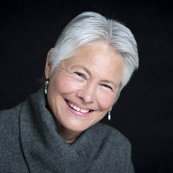
Gail Straub
Gail Straub
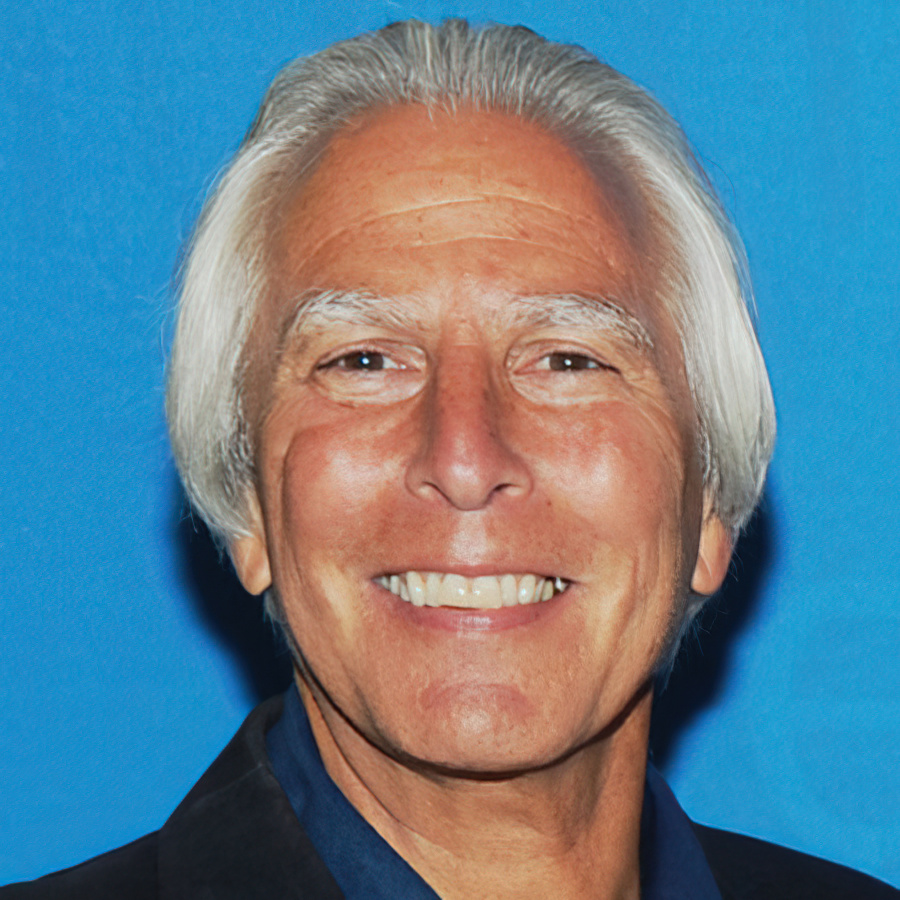
David Gershon
David Gershon
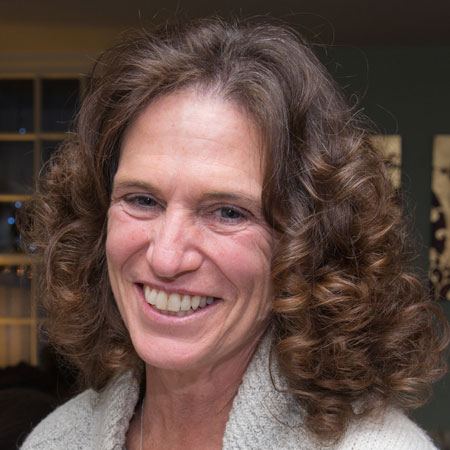
Theresa McGahran
Theresa McGahran
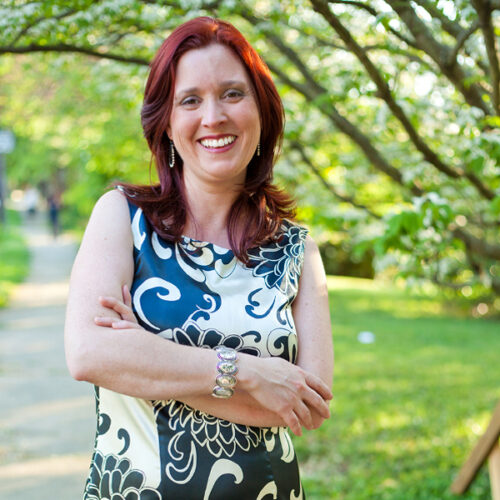
Gail Bu
Gail Bu
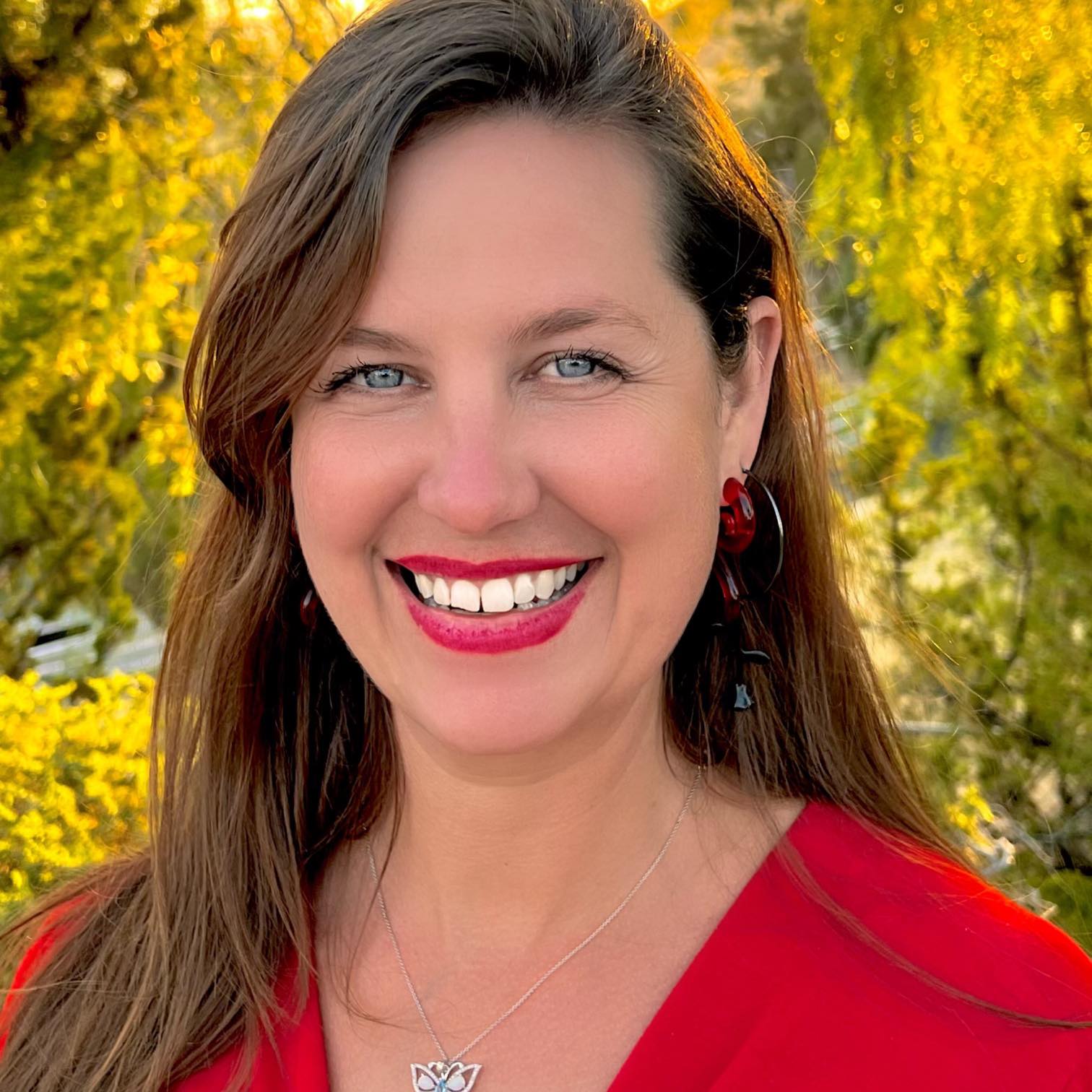
Miranda Clendening
Miranda Clendening
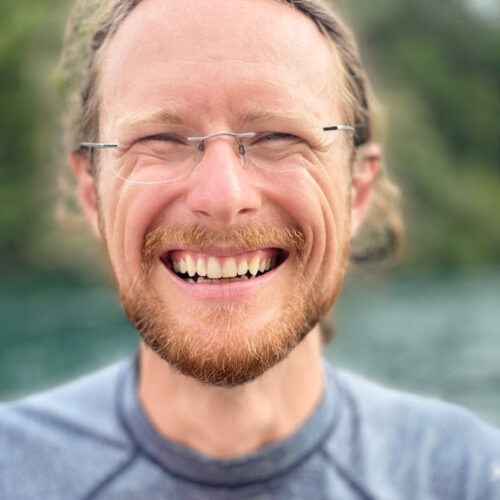
Carlen Young
Carlen Young
Gail Straub
Gail Straub, cofounder and executive director of the Empowerment Institute, is one of the world’s leading authorities on women’s empowerment. She codirects the Empowerment Institute’s School for Transformative Social Change, which empowers change agents from around the world to design and implement cutting-edge social innovations. As part of this focus, she cofounded IMAGINE: A Global Initiative for the Empowerment of Women to help women heal from violence, build strong lives, and contribute to their community. IMAGINE initiatives are under way throughout Africa, Afghanistan, India, and the Middle East. Gail has been a consultant to many organizations furthering women’s empowerment including the Chinese Women’s Federation, Women for Women International, World Pulse, and the Omega Women’s Leadership Center.
Gail is the author of five books, including, with her husband, David Gershon, the best-selling Empowerment: The Art of Creating Your Life As You Want It; the critically acclaimed The Rhythm of Compassion: Caring for Self, Connecting with Society; and the award-winning feminist memoir Returning to My Mother’s House: Taking Back the Wisdom of the Feminine. She is also a contributor to the anthology Enlightened Power: How Women Are Transforming the Practice of Leadership.
Taking her empowerment work global early in her career, Gail served as the international director for the First Earth Run, a historic planetwide initiative cosponsored by the United Nations Children’s Fund (UNICEF) and ABC Television in 1986, during the height of the cold war. As a torch of peace was passed around the world, 25 million people in sixty-two countries participated and the relay garnered recognition from forty-five heads of state. The event raised millions of dollars for UNICEF that was distributed to the neediest children in the world.
Gail has served in the Peace Corps in West Africa and on many boards including Omega Institute and the Russian American Initiative.
Empowerment Institute Team:Co-Founder, Executive Director
Imagine Program Team:Co-Founder, Executive Director
David Gershon
David Gershon directs the Cool LA initiative.
David is CEO of Empowerment Institute and creator of the Cool Block program and Cool City Challenge. His experience includes developing sustainable lifestyle campaigns for over 200 cities worldwide and behavior change programs empowering millions of people to adopt low carbon lifestyles. It also builds on his expertise in creating large scale transformative social change initiatives. The largest of which was the First Earth Run which engaged 25 million people and 45 heads of state in 62 countries to pass a torch of peace around the world. This event was witnessed by a billion people through the global media.
Theresa McGahran
Theresa McGahran is the IMAGINE Director of Community Learning, where she works closely with IMAGINE-partner nongovernmental organizations throughout the world to support them in achieving mastery as practitioners of empowerment. She has worked in training and development for the past twenty years and her expertise includes coaching, mentoring, and training. A practical and intuitive facilitator, Theresa builds lasting relationships and has demonstrated personal management skills in operations, finance, personnel selection, and performance evaluation. She is certified by the Empowerment Institute and holds a master of science degree in organizational change management from the New School for Management and Urban Studies in New York. A blue-water sailor, Theresa lives in Croton-on-Hudson, New York.
Imagine Program Team:Director of Community Learning
Gail Bu
As the IMAGINE Administrative Director, Gayle Bu works closely with the team supporting coaches and program participants. She coordinates all aspects of the IMAGINE Certification Program (ICP) while assisting coaches, mentors, and apprentices for excellent results. Her favorite part of her job is connecting with the IMAGINE family from all over the world. Gayle brings over thirty years of experience working in administrative partnership with entrepreneurs, leadership coaches, and corporate executives. In addition to being a small business entrepreneur and founder of Bu Virtual Office Services, she serves as a mentor at AssistU, the industry leading training program for Virtual Assistants. Gayle was born and raised in Australia, has lived in Greece and the UK and currently resides in Atlanta, Georgia with her husband and their two teenage boys. When she’s not at her desk, you’ll find her spending time with her family, volunteering, baking, making craft-chocolate and engaging in a never-ending list of creative pursuits.
Miranda Clendening
Miranda Clendening is Program Manager for Cool LA responsible for managing the overall initiative.
Miranda’s skills include non-profit management, whole system community design, partnership development, technology integration, and large-scale event management. As former Executive Director for Unify she brought tens of millions of people together around the world in multiple unitive events. She is passionate about second order change, climate action and community regeneration.
Carlen Young
Carlen Young is Technology Director for Cool LA responsible for design upgrades and maintenance of the Cool Block and Cool Neighborhood platforms.
Carlen is passionate about community psychology, empowerment and second order change solutions. He applies these passions to increase personal agency and planetary well-being through designing social impact web and app platforms. As a psychology researcher with the University of California, Santa Cruz, Carlen spent a decade researching community building strategies and tools.
We offer our deep appreciation for the generous financial, communication and strategic support of our partner, Josie Maran Cosmetics.
